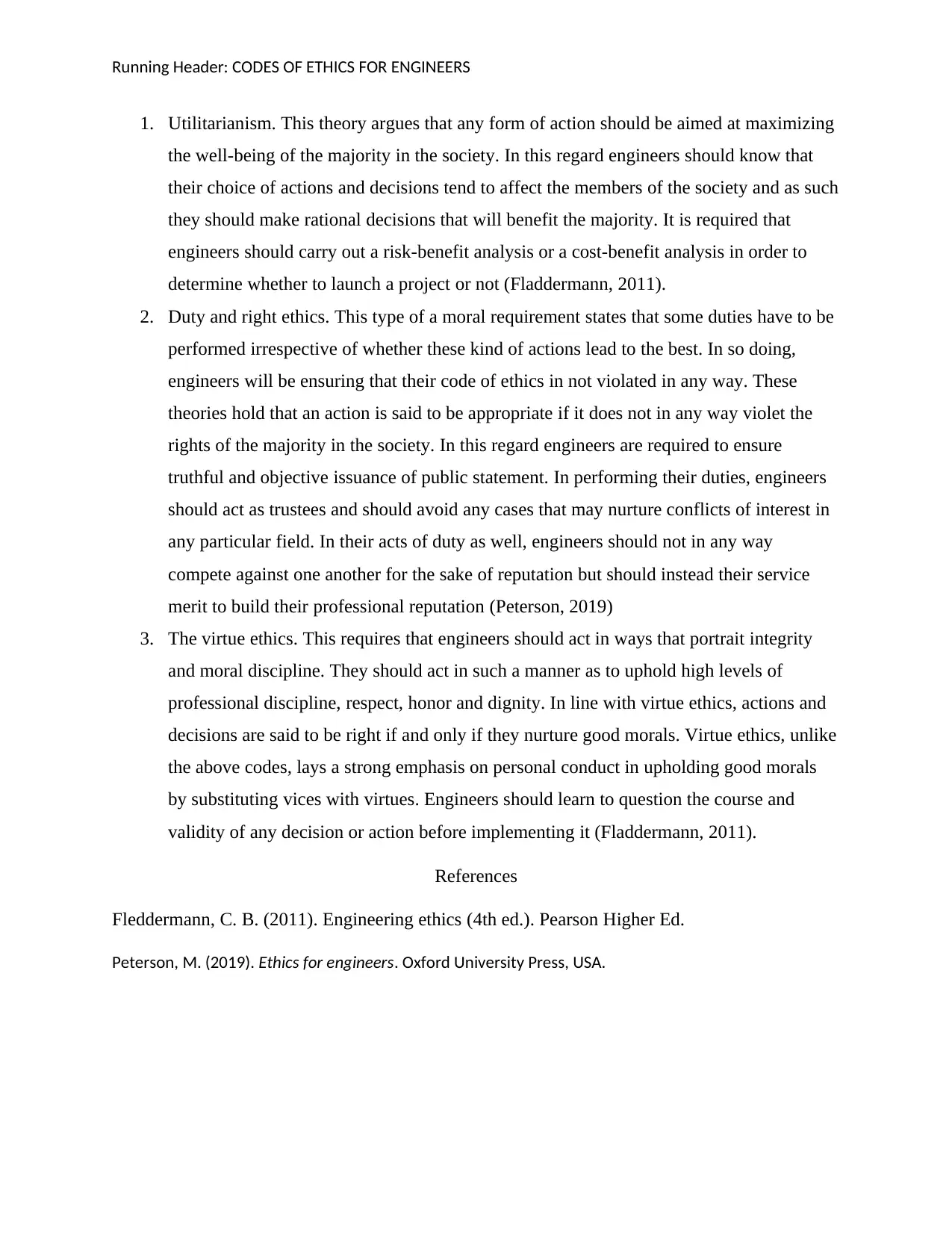Engineering Ethics: Codes of Ethics, Theories and Practices
VerifiedAdded on 2022/08/31
|1
|409
|12
Report
AI Summary
This report explores the core principles of engineering ethics, focusing on utilitarianism, duty and right ethics, and virtue ethics. It examines how these ethical frameworks guide engineers' decisions and responsibilities. The report discusses the importance of risk-benefit analysis, truthful public statements, and avoiding conflicts of interest, emphasizing the need for engineers to act with integrity, uphold professional discipline, and prioritize good morals. The content also references key publications in the field, such as 'Engineering Ethics' by Fleddermann and 'Ethics for Engineers' by Peterson, to provide a comprehensive understanding of ethical considerations in engineering practice. The report highlights the significance of ethical conduct in maintaining professional reputation and ensuring the well-being of society.







![[object Object]](/_next/static/media/star-bottom.7253800d.svg)